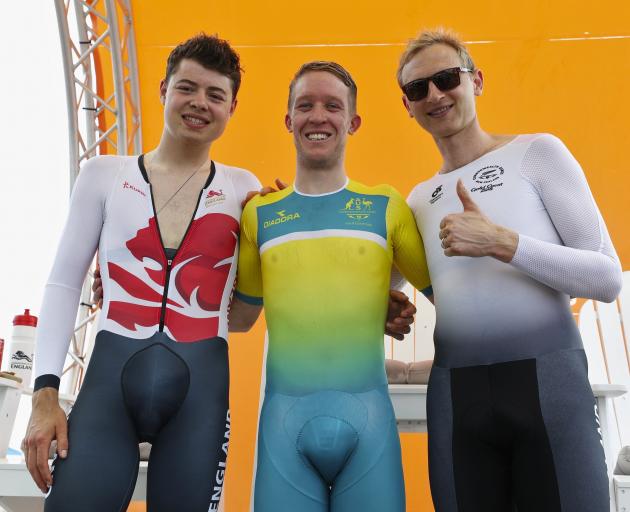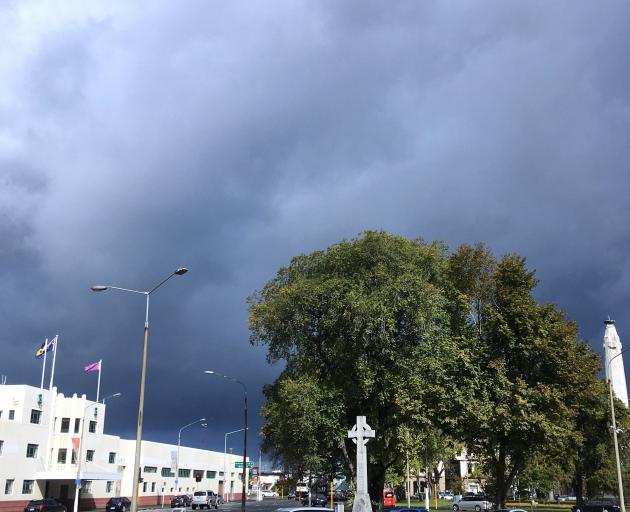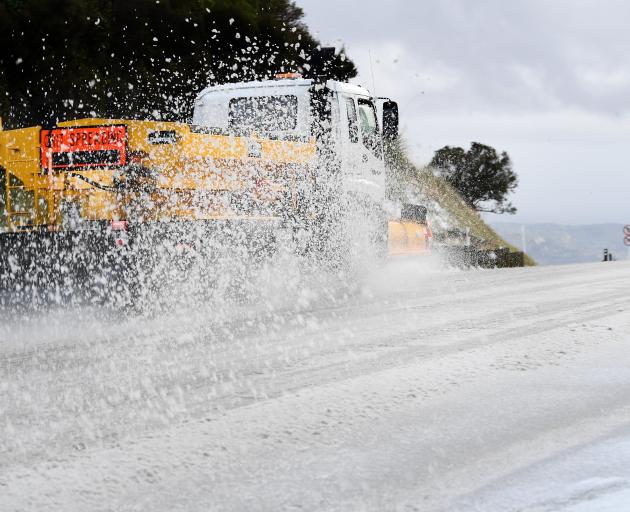

But if this had blown in during the real winter, when the sun is much lower in the sky and the ground is colder, the snow may have been lying thickly right down to sea level.
There are two main reasons why I'm talking about the weather again. The first is, I couldn't help it, it has just been too exciting. The second is, I did it to annoy the public relations company which has come up with this ridiculous ''Stop the Weather Waffle'' campaign for its client.
Now I know that even by mentioning this advertising offensive it means the company and the product are achieving their goal of being talked about. But I am not going to give them the added satisfaction of having their names in our column. Suffice to say I am intensely irked by an effort to demean and diminish one of our greatest sources of conversation on a topic I love.
According to the media release, this company wants to ''put a dampener on the weather chat, once and for all''. They say there is ''no need to waffle on about the weather'' - how wrong can you be, yes there is - and that the company is ''so committed to stopping the dreaded weather waffle'' they have made a mockumentary about it. Well I'm sorry, but the view out the window is much more to my liking.
To be blunt, they want us to ''waffle on'' instead about their heat pumps. It's all just marketing hot air. I know which most of us will find more interesting.

Two last reminiscences of that awful April 10, 1968 storm in Wellington, generated by the clash of an unseasonably cold southerly airstream with the intensifying remains of Tropical Cyclone Giselle off the North Island's east coast (a bit of extra detail there to annoy the would-be anti-weather campaigners).
Andrew Metcalfe of Mornington in Dunedin says the storm commemorations reminded him to look out the memories his father jotted down that day.
''I was around 6 at the time and we were expecting my 72-year-old grandmother, who was travelling on the Wahine, to visit us in Wellington. It was wild outside, the electricity was off and we only had a kerosene heater to keep us warm.
''I can remember kind neighbours bringing some hot food for us (I think they had a gas cooker) while my father braved howling gales and flying roofing iron to check people were OK and try and find out what was happening with the ferry.
''He was very keen on electronics, with a mobile radio-telephone in the car that he could adjust to listen to the police channel. The official media line was that the ship had gone on to sand, but the police were saying quite clearly it had gone on to Barrett Reef and the bottom had been ripped out of it.
''My grandmother was on one of the few lifeboats that made it to Seatoun and didn't capsize, but Dad heard some pretty horrific conversations on the police channel about what happened to others who were driven on to the rocks south of Eastbourne.

Wendy Ockwell of Outram says she was the manager of a Dunedin travel agency when the Wahine went down.
''I remember the Union Steam Ship Company telexed all of their agents to advise them that the ship was waiting outside Wellington Harbour, as it was unadvisable to berth during the storm.
''I had an old English couple on board who were connecting with the Northern Star (of the Shaw Savill Line) the next day to sail back to England after holidaying in New Zealand.
''They wrote to me on their return to England and told me that they had survived the sinking and that they were given enough money to buy underwear and pyjamas and departed on the Northern Star the next day (no baggage, no passports etc).
''What an ordeal for them, to have to embark on another ship so soon after being shipwrecked.''
One can only imagine what they went through on the long journey back home.
